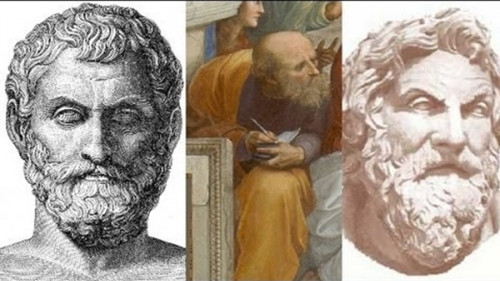Scientists are those who have contributed their research to humanity’s knowledge base for thousands of years. So who is the ancestor of all the sciences of history?
The term “scientist” was first used in English in 1834. And since then people have tried to find out who was mankind’s first scientist.
Famous names such as Galileo, Archimedes and Pythagoras often appear. They are the ones who have made a great contribution to modern science.
However, scientist Carlo Rovelli maintains that the first scientist in history is Anaximander, a little-known Greek philosopher.
Anaximander was a pre-Socratic Greek philosopher. He lives in Miletus, a town in Ionia; Millet in Turkey today.
 Anaximander is considered the first scientist in history.
Anaximander is considered the first scientist in history.
Very few of his works exist today, he is considered the first philosopher to have recorded his studies. Anaximander was one of the earliest Greek thinkers of the Axiel period, which lasted from 700 to 200 BC.
Anaximander is a prominent scientific scientist who tries to observe and explain various aspects of the universe, especially about the origin of the universe. He argues that nature is ruled by laws and anything that interferes with the balance of nature cannot last long.
Like many thinkers of this period, Anaximander’s contribution to philosophy was linked to many other disciplines. In astronomy, he described the mechanism of the sky in relation to the Earth.
Physically, he argued that uncertainty was the source of everything, which drove Greek philosophy to a new level of abstraction.
His knowledge of geometry helped him introduce the sundial to Greece. He created a map of the world, an achievement that greatly contributed to the development of the field of geography.
According to many remaining documents, Anaximander was the first to propose that the Earth was floating in space, all living things from a common ancestor, and the phenomena that occur. in the sky belongs to meteorology, not to the product of the gods.
However, the basis of Rovelli’s argument is still controversial as documents and works of the philosopher Anaximander still exist to this day.


